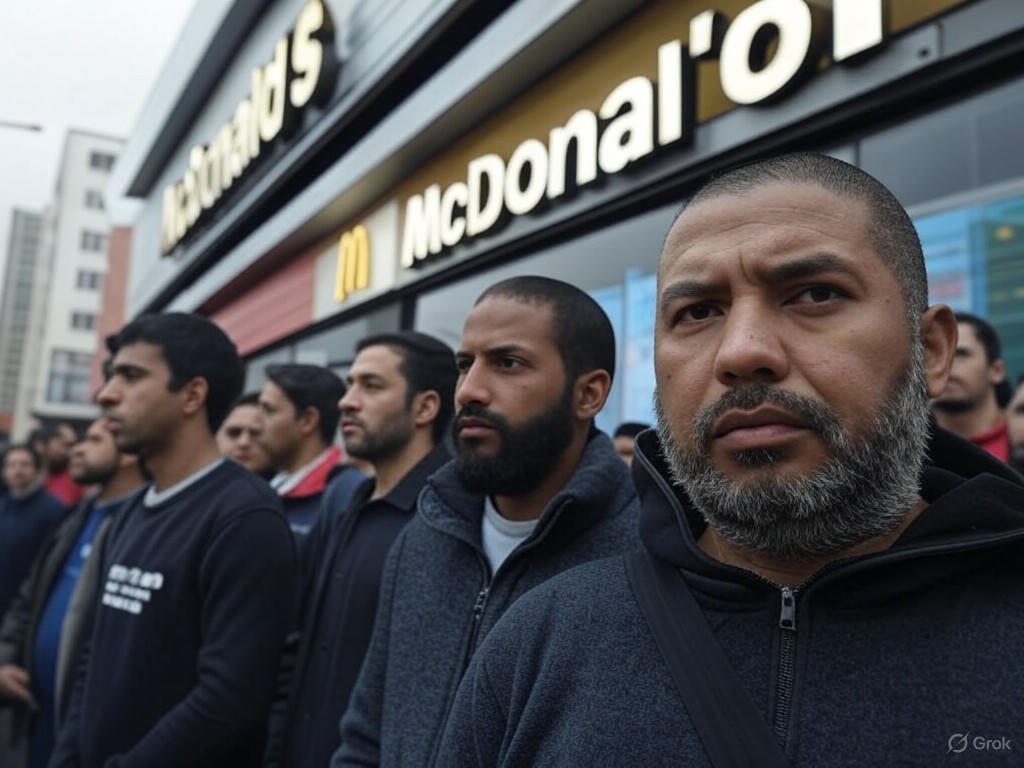In a striking display of consumer power, McDonald’s has become the latest corporate giant to face an ‘economic blackout’ protest, spearheaded by the activist group People’s Union USA. This movement, which urges customers to withhold spending at targeted companies, aims to hold major corporations accountable for their business practices, labor policies, and societal impact. The protest against McDonald’s, which gained traction in mid-2025, has sparked conversations about the role of fast-food chains in addressing economic inequality and workers’ rights.
The People’s Union USA, a grassroots organization dedicated to challenging corporate overreach, has been at the forefront of similar campaigns throughout the year. Earlier in 2025, the group orchestrated boycotts against retail behemoths Walmart and Amazon, accusing them of unfair labor practices and prioritizing profits over employee welfare. Their strategy is simple yet impactful: encourage consumers to abstain from purchasing goods or services from these companies for a designated period, effectively creating an ‘economic blackout’ that pressures firms to reconsider their policies. With McDonald’s now in the spotlight, the group claims the fast-food leader has failed to adequately address low wages, inconsistent scheduling, and limited benefits for its frontline workers, many of whom struggle to make ends meet despite the company’s massive global profits.
Social media has played a pivotal role in amplifying the protest’s reach, with hashtags and viral posts urging people to skip their usual Big Mac or McFlurry in solidarity. Activists argue that McDonald’s, as a symbol of American capitalism, has a responsibility to set a higher standard for worker treatment, especially given its influence in the fast-food industry. Critics of the company point to its reported billions in annual revenue while many employees rely on public assistance to survive. On the flip side, McDonald’s has defended its practices, highlighting recent initiatives to raise minimum wages at company-owned locations and invest in employee training programs. However, skeptics argue these measures fall short of addressing systemic issues faced by franchise workers, who make up a significant portion of the chain’s workforce.
The broader implications of these protests extend beyond McDonald’s. The People’s Union USA’s efforts signal a growing frustration with corporate power and wealth disparity, as everyday consumers increasingly use their wallets as tools for change. Economists note that while short-term boycotts may not severely dent a company’s bottom line, the public relations damage and potential for long-term shifts in consumer behavior could push firms to act. Other industries are watching closely, wondering if they might be the next target of this rising wave of activism.
As the ‘economic blackout’ against McDonald’s continues, the movement underscores a critical question: can consumer-driven protests truly reshape corporate behavior? While the outcome remains uncertain, one thing is clear—activist groups like People’s Union USA are redefining the relationship between businesses and the public, one boycott at a time. The fast-food giant now faces a pivotal moment to respond, as the world watches whether it will adapt or risk further backlash.
